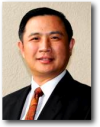Machine Learning: Kernel, Sparsity, Online, and its Perspectives
Irwin King, Michael Lyu, Haiqin Yang
Department of Computer Science and Engineering
The Chinese University of Hong Kong
Abstract
Machine learning, a scientific discipline centering on the design and devel- opment of algorithms that allow computers to evolve behaviors based on empirical data, has emerged as a powerful tool for many real-world applica- tions, including pattern recognition, bioinformatics, and marketing decision, etc. With the change of new applications, especially those applications on Web 2.0, mobile Internet, developing new machine learning techniques with easy interpretation, reliable outcomes, and efficiency for large-scale applica- tion becomes essential.
The tutorial will investigate several important components of machine learning techniques. First, an overview of different learning paradigms with their key features is important to give a whole map of this area. Second, for- mal theoretical frameworks and models will lead to the core of the state-of- the-art techniques. Algorithms with theoretical and convergence properties can guarantee the robustness of the algorithms. Moreover, how to derive models from practical problems and how to abstract practical issues into theoretical models will stimulate thoughts of these models. Third, current emergent applications become more and more complicate, e.g., heteroge- neous data, complex tasks. How to develop novel algorithms based on the requirements of new applications will enhance the usages of learning models. Fourth, interpretation on the learning results and the learned models is a major property of making the algorithms valuable for practical problems. Lastly, scalability issue also needs to be examined. It is a key to make the algorithms applicable for real-world applications.
The tutorial will conclude by summarizing and reflecting back on the trends of machine learning techniques which may lead to the change of the whole area of exciting and dynamic research that is worthy of more detailed investigation for many years to come.
Research Interests
Irwin King
Irwin King's research interests include social computing, machine learning, web intelligence, and multimedia processing. In these research areas, he has over 200 technical publications in journals, conferences, book chapters, and edited volumes. He was the General Chair of Web Search and Data Mining (WSDM2011), and also has been involved with the organization and/or technical program of many international conferences such as WWW, SIGIR, KDD, AAAI, etc. Moreover, he has served as reviewer and panel member for Research Grants Council (RGC) of Hong Kong, Natural Sciences and Engineering Research Council of Canada (NSERC), National Natural Science Foundation of China (NSFC), and Natural Science, and Engineering of Academy of Finland. Dr. King is an Associate Editor of ACM Transactions on Knowledge Discovery from Data (ACM TKDD) and a former Associate Editor of the IEEE Transactions on Neural Networks (TNN). He is a member of the Editorial Board and Special Issue Editor of a number of international journals. He is Professor at the Department of Computer Science and Engineering, The Chinese University of Hong Kong. Currently he is on leave with AT&T Labs Research, San Francisco and is also teaching Social Computing and Data Mining as a Visiting Professor at UC Berkeley. He received his B.Sc. degree in Engineering and Applied Science from California Institute of Technology, Pasadena and both his M.Sc. and Ph.D. degrees in Computer Science from the University of Southern California, Los Angeles. See http://irwinking.com for more information.
Michael Lyu
Prof. Lyu’s research interests include software reliability engineering, dis- tributed systems, fault-tolerant computing, web technologies, mobile net- works, digital video library, multimedia processing, and video searching and delivery. He has participated in more than 30 industrial projects in these ar- eas, and helped to develop many commercial systems and software tools. He has been frequently invited as a keynote or tutorial speaker to conferences and workshops in U.S., Europe, and Asia.
Prof. Lyu has published over 400 refereed journal and conference papers in his research areas. He initiated the first International Symposium on Soft- ware Reliability Engineering (ISSRE) in 1990. He was the Program Chair for ISSRE’96, Program co-Chair for WWW10, General Chair for ISSRE’2001, General co-Chair for PRDC’2005, and has served in program committees for many conferences. He is the editor for two book volumes: Software Fault Tolerance, published by Wiley in 1995 and the Handbook of Software Re- liability Engineering, published by IEEE and McGraw-Hill in 1996. These books have received an overwhelming response from both the academia and the industry. He was an Associate Editor of IEEE Transactions on Reliabil- ity, IEEE Transactions on Knowledge and Data Engineering, and Journal of Information Science and Engineering. He is currently on the editorial board of Wiley Software Testing, Verification and Reliability Journal. He was elected to IEEE Fellow (2004) and AAAS Fellow (2007) for his contribu- tions to software reliability engineering and software fault tolerance. He was also named Croucher Senior Research Fellow in 2008 and IEEE Reliability Society Engineer of the Year in 2010.
Prof. Lyu is currently a Professor in the Computer Science and Engineering department of the Chinese University of Hong Kong. He received his B.S. in Electrical Engineering from National Taiwan University, his M.S. in Computer Science from University of California, Santa Barbara, and his Ph.D. in Computer Science from University of California, Los Angeles.
Presentation Materials
- Tutorial file: pdf.


